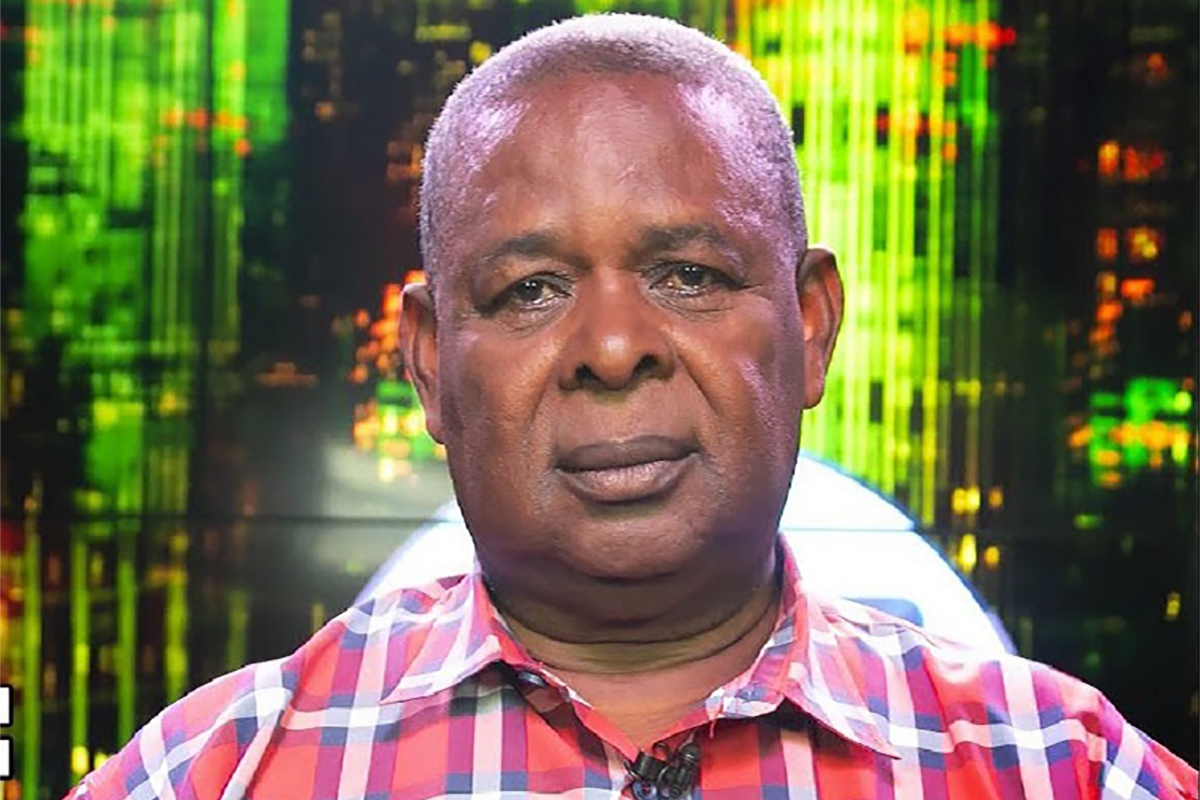Gladstone Wright, Music Producer-Cop Behind Jah Cure’s ‘Prison Walls’, Is Dead

Music producer and retired senior superintendent of police Gladstone Wright, best known as being one of the producers behind Jah Cure’s hit song True Reflections (Behind These Prison Walls), died recently.
Wright was the founder/director of the Rehabilitation of Offenders through Music Programme (formerly Rehabilitation through Music).
“It was his view, as a law enforcer, that music would be the effective means of rehabilitation and also help them to gain employment and improve their skills upon their release,” Major (Ret’d) Richard Reese, a former Commissioner of Corrections, said.
One of those inmates was reggae singer Siccaturie Alcock a.k.a. Jah Cure. The single, True Reflections (Behind These Prison Walls), was a major single for Jah Cure, topping several ethnic reggae charts when it was released in 2006. It was recorded while he was incarcerated in Jamaica (for raping and robbing a woman at gunpoint), as part of a “Rehabilitation Through Music” program in the prison.
“There was a controversial incident where Wright produced a song with Siccaturie Alcock. The reason why it was promoted is the song had a positive message and impact, and we also sought to motivate inmates internally. So it was never had any intention of glorifying Alcock as an offending musician,” Major Reece explained.
Cure’s True Reflections, the most popular song produced by the programme, is a commentary on doing extensive time behind bars. Co-written by Wright, it came out in 2005 and preceded the singer’s release in 2007.
In the song, he hit an important emotional note as he appeared to be looking outward from “behind these prison walls/doing my paces/doing my time”. And no one could say they were not moved when he wailed: “prison a no bed a rose/the livity it makes me bawl”.
Major Reece said that despite Jah Cure’s less-than-sterling reputation, the song delivered an important message at the time.
“So we were really just focusing on the life-changing aspects of the song, and discussions were also held on whether funds generated from these initiatives could work to the benefit of the programme which required funding. It did get a lot of support. Kudos to a dedicated law enforcer who had a passion for music and also had the view that it could have some positive impact on inmates through rehabilitation,” Reece said.
Last year, the rehab programme’s most decorated alum Jah Cure was sentenced to six years in prison in the Netherlands, after he stabbed event promoter Nicardo ‘Papa’ Blake on October 1 at Dam Square, in the city center of Amsterdam, where he was booked for a performance.
WRIGHT WAS PASSIONATE ABOUT HIS WORK
Wright also worked with the Jamaica Constabulary Force, serving with the Special Branch, Protective Services Division and Narcotics Division.
A long-time bodyguard of the late PM Shearer, he was also a music producer, who worked closely with other artists like Noddy Virtue and Jodian Pantry, among others.
“SSP Wright was passionate about his work and was very persistent in devising security measures to support the implementation of the several initiatives,” Major Reece said.
A long-time friend of SSP Wright, Major Reece paid tribute to Wright’s passion of rehabilitating inmates through music.
“SSP Wright was also instrumental in leveraging resources to support the rehab through music program by having a number of artistes perform inside the prisons. All these artists performed music with transformative messages and gospel themes,” he added.
Wright was well-known for his advocacy towards prison rehabilitation through music, developing a programme that would allow inmates to record while behind bars is geared towards their rehabilitation and facilitate their successful integration back into society.
Major Reece said that the programme included all aspects of music production which included, composing, arranging, recording and performance, and had a component that included a prison radio which provided FM radio within the confines of the Tower Street correctional facility.
“It was very effective at the time because a significant number of the inmates were interested in music so what we sought to do, enrol in English and Mathematics classes as a gateway to the music lab. Interestingly, there were a number of correctional officers who had significant talent so it complimented the programme and it had the support of the staff,” Major Reece said.
The programme was conceptualised in 2004 by Wright and the Department of Correctional Services, who were searching for new ways to reform inmates. In 2007, the recording aspect of the programme deteriorated but has recently been revamped.
“The programme also motivated others such as Prof. Charles Nesson of Harvard Law School, Carla Gullata, Carlene Davis and Mr. Josef Bogdanovich to become interested in the programme. It is hoped that the music industry, Edna Manley School for the Visual and Performing Arts and key players will seek to build on the successes gained so far,” Reece added.
Wright retired from his post as superintendent of police in 2008 after serving for over 40 years. He has produced two albums for Noddy Virtue and worked on projects with Morgan Heritage.

